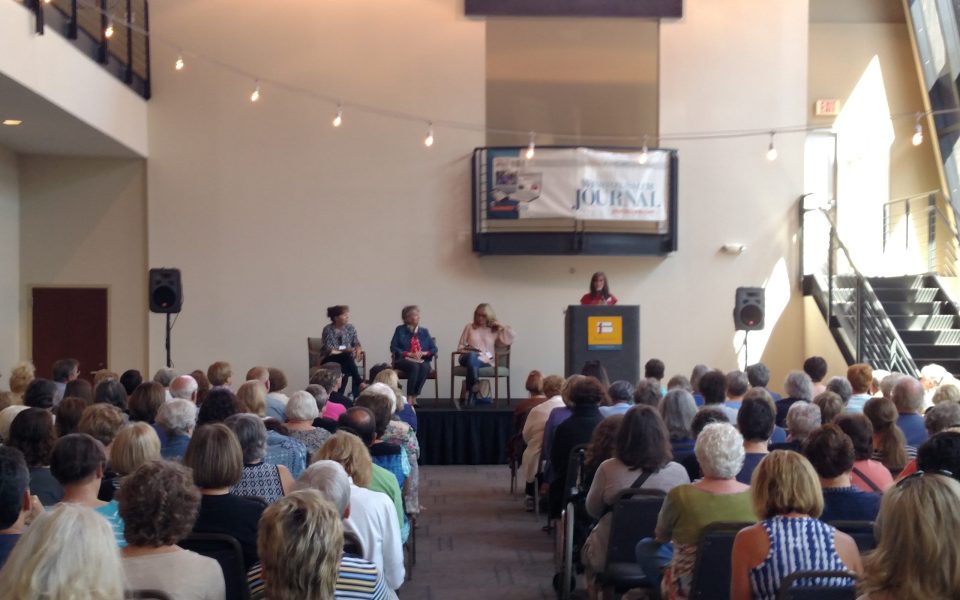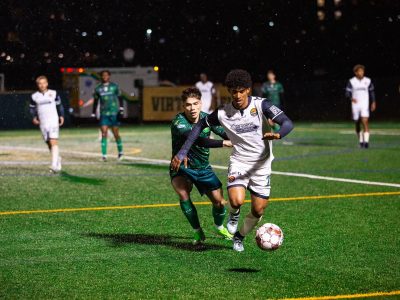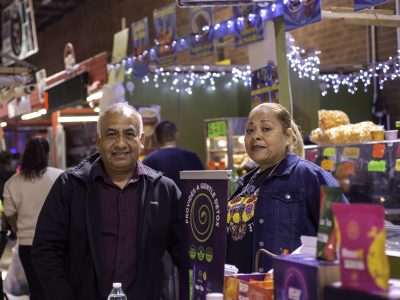A warm breeze flapped the ends of the tents that were stationed around the city block of Holly, Poplar and Spruce streets in downtown Winston-Salem. As booths were still being set and stocked, the pavement and sidewalks felt the footfalls of hundreds of festivalgoers. Moving from tent to tent, waiting on seminars and panels to begin, there was a feeling of anticipation in the air.
Since its inception 13 years ago, the literary non-profit festival has made an impressive name for itself in the North Carolina literary and arts community, hailed as the largest book festival in the Carolinas. Having brought more than 600 award-winning authors, illustrators and storytellers to Winston-Salem for the annual festival to date, the 2017 festival delivered an expansive day of panels and readings all given by a stellar line-up of authors and editors.
Any bibliophile could easily fill several hours at the festival, which ran from Sept. 7-10 with over 30 readings, discussions and panels scattered throughout the day for their choosing. From how to properly create and imagine fantastical characters or develop worlds in Southern literature to writing about race and Civil War fiction, dozens of prize-winning authors guided fans and aspiring writers through their own books, as well as the body of literature throughout history.
With specific panels geared toward would-be authors, Bookmarks, in association with the NC Writer’s Network, held its much-loved event Slush Pile Live, a panel of three prominent North Carolina book and magazine editors who hear anonymous story pitches read aloud and give feedback and criticism. As this years’ panel of editors, comprised of Steve Kirk (formerly of John F. Blair publishers), Robin Miura (Carolina Wren Press) and Julia Smith (Bull City Press), took the stage, the tent was nearly full, as first pages of novels and stories were read with the authors sitting nameless in the crowd.
Host Ed Southern of NC Writers Network read the pitches aloud. When something struck one of the editors — poor dialogue, choppy language, cliché metaphors — they raised a hand. The crowd sat listening to one of the better pitches, one of a fantastical world, and the tent seemed to grow smaller and smaller as each editor’s hand shot up. Whomever the author was is unknown, but the event drew sympathy from audience members who hoped to see pitches succeed. But in the end, perhaps it’s better to cruel to be kind.
“We’ve been here before,” Julia Ridley Smith said in response to one of the pitches. “There were a lot of cliché moments and adjectives here. The flow felt choppy and I was lost from the beginning.”
While some pitches received harsher response than others, all were given ways they could be improved and tightened in order to tell the story better.
On the hands-on side of writing, a flash-fiction workshop hosted by Steve Cushman guided authors through a workshop of their fiction and opened a dialogue between author and student that is usually reserved for college classrooms or private writers groups.
Most of the panels were held at least twice over the course of the festival, giving all a chance to hear all of the authors they wished. One downside to most festivals is the sea of unknown authors and featured guests who spark little interest in audiences, but Bookmarks proved expert in bringing such contemporary giants as Diana Gabaldon (author of the Outlander series), Jamie Ford, Stephanie Powell Watts, Robert Hicks and Jancee Dunn.
“I attend a lot of book festivals throughout the year,” editor Robin Miura said after hosting Slush Pile Live. “And this is truly one of the best designed events I’ve ever been to.”
From curating a summer reading program for students in the community and bringing authors to local schools to hosting North Carolina’s largest festival of books, Bookmarks continues to satisfy the need and craving for literature in the Triad. In a time where books seem a distant thought behind Netflix, iPhones and technology, festivals and independent booksellers like Bookmarks aim to keep literature alive, fostering the love of books and writing. The hundreds of festivalgoers at the annual Bookmarks festival prove that it isn’t all for naught.
Join the First Amendment Society, a membership that goes directly to funding TCB‘s newsroom.
We believe that reporting can save the world.
The TCB First Amendment Society recognizes the vital role of a free, unfettered press with a bundling of local experiences designed to build community, and unique engagements with our newsroom that will help you understand, and shape, local journalism’s critical role in uplifting the people in our cities.
All revenue goes directly into the newsroom as reporters’ salaries and freelance commissions.





Leave a Reply